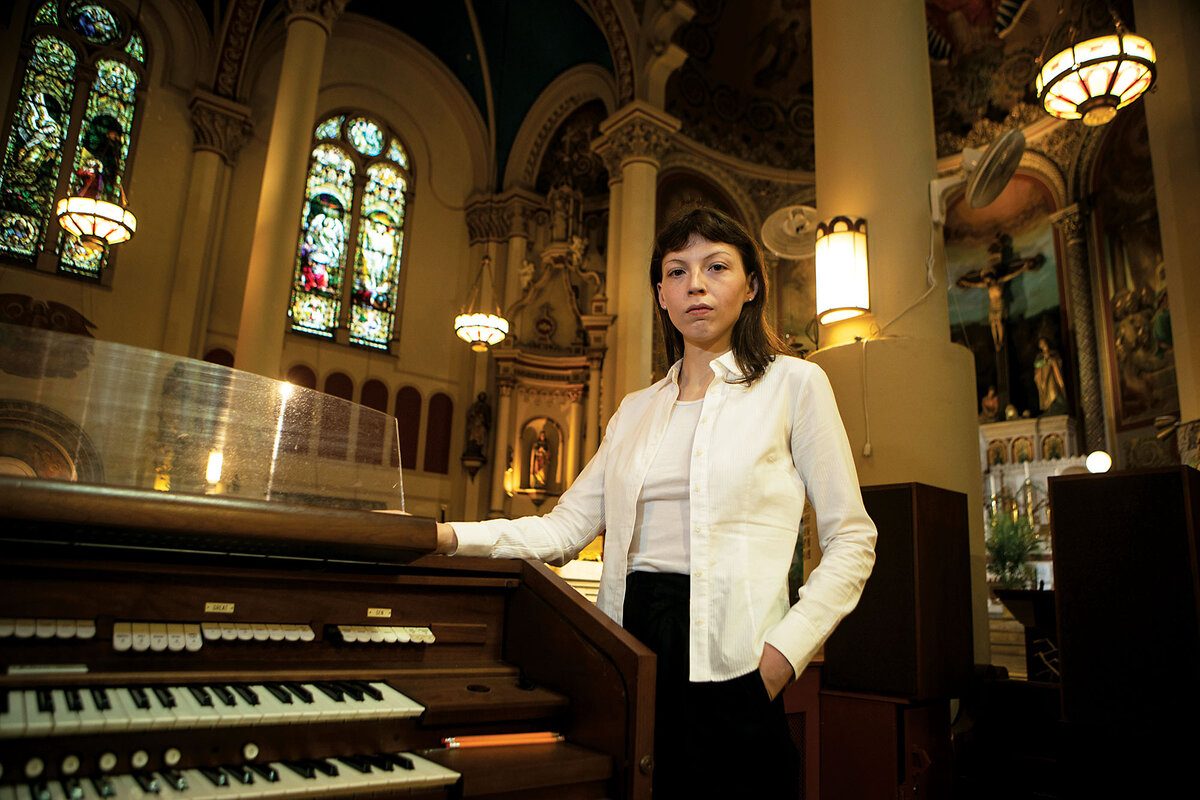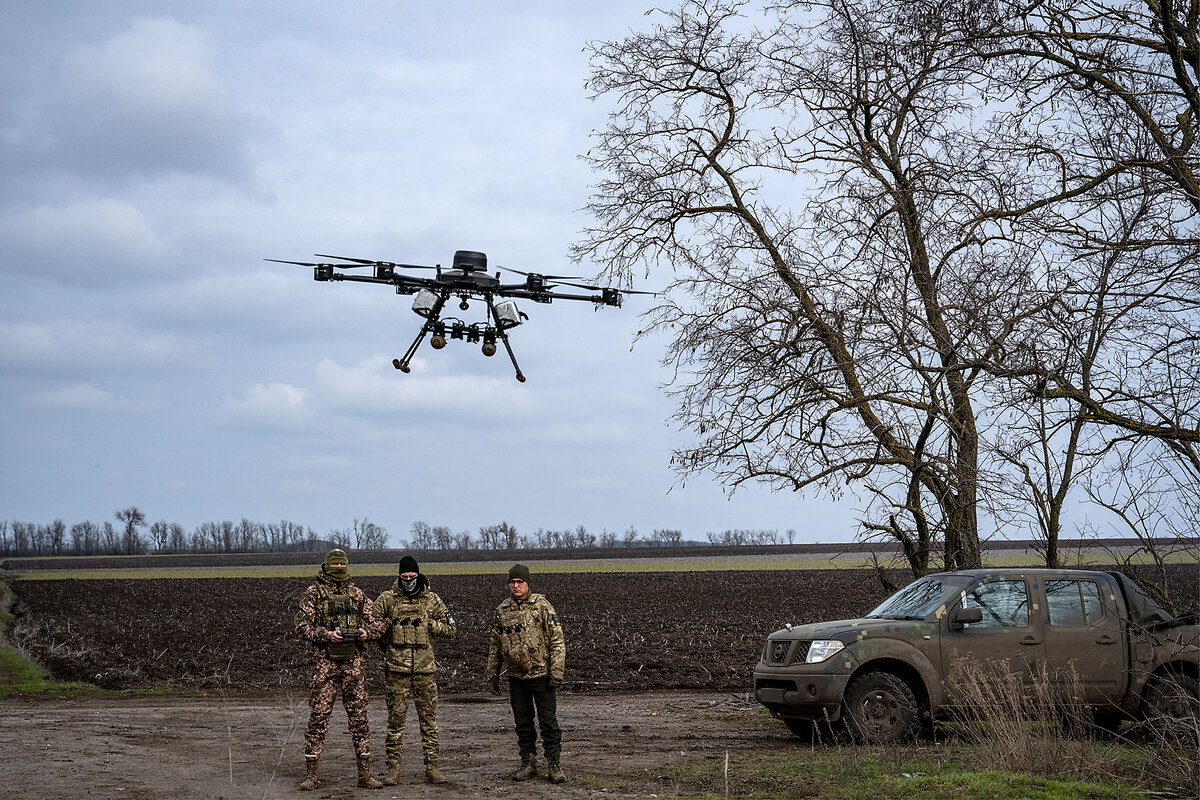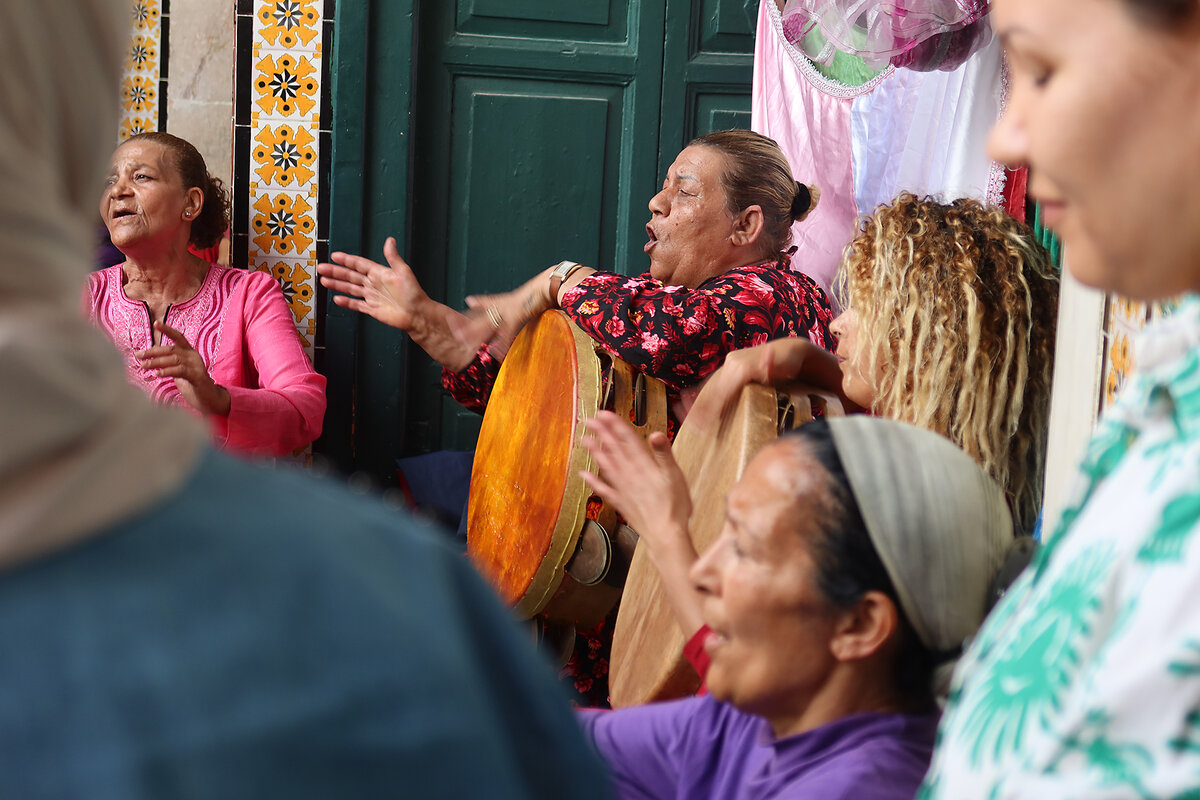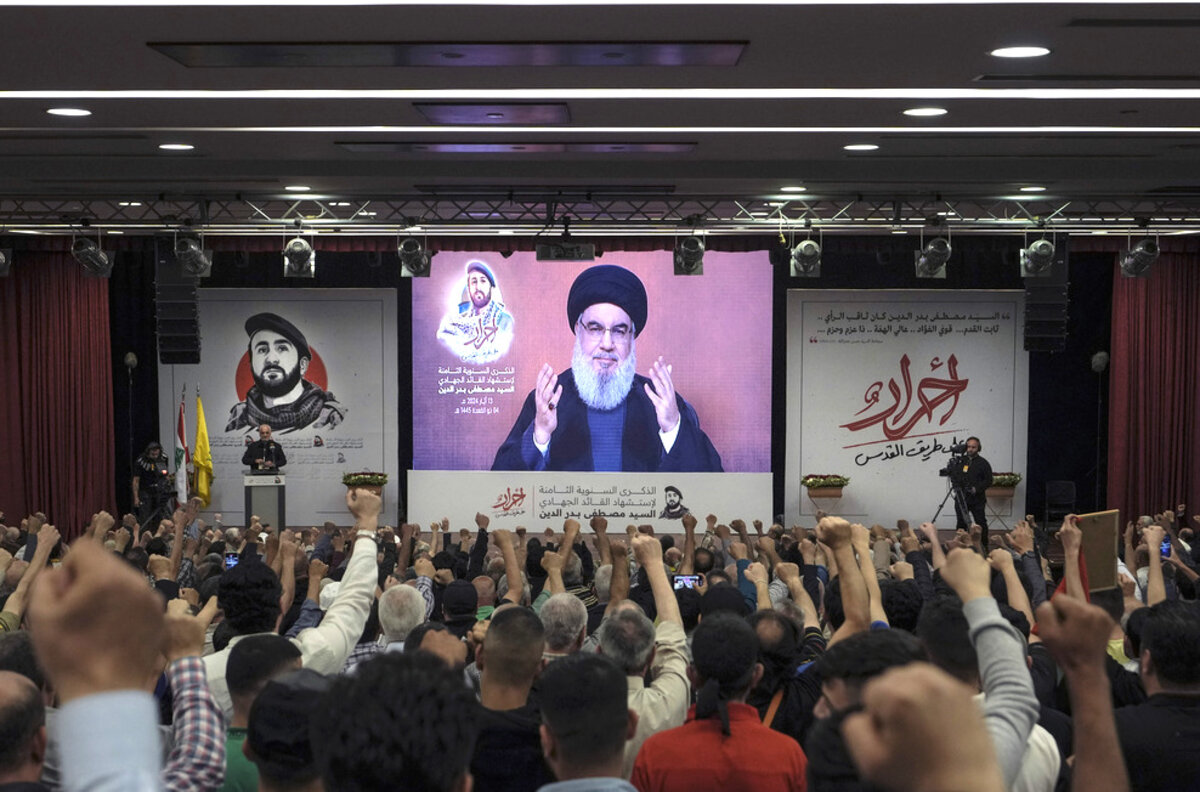New York has long been a haunt for underground artists. A growing number have become more conservative – and religious.

Why is Christian Science in our name?
Our name is about honesty. The Monitor is owned by The Christian Science Church, and we’ve always been transparent about that.
The Church publishes the Monitor because it sees good journalism as vital to progress in the world. Since 1908, we’ve aimed “to injure no man, but to bless all mankind,” as our founder, Mary Baker Eddy, put it.
Here, you’ll find award-winning journalism not driven by commercial influences – a news organization that takes seriously its mission to uplift the world by seeking solutions and finding reasons for credible hope.
Explore values journalism About usMonitor Daily Podcast
- Follow us:
- Apple Podcasts
- Spotify
- RSS Feed
- Download
 Mark Sappenfield
Mark Sappenfield
By now, many of you know Amanda Ripley, a journalist and Monitor friend. Her latest column is a must-read. It’s called “The Protest Trap,” and it asks one of the most important questions of today: How do we create change? (I recently explored the same question here.)
Protests can help, Amanda says, but they can also fool us into thinking toting a placard is enough. Instead, change comes through relationships. Movements that change the world “create a web of rapidly replicating relationships that expands geometrically,” she writes.
Transformational change, then, doesn’t start with a “them.” It starts with an “us.”
Already a subscriber? Log in
Help fund Monitor journalism for $11/ month
Monitor journalism changes lives because we open that too-small box that most people think they live in. We believe news can and should expand a sense of identity and possibility beyond narrow conventional expectations.
Our work isn't possible without your support.
Today’s stories
And why we wrote them
A deeper look
( 17 min. read )
Today’s news briefs
• Gaza cease-fire proposal: Israeli Prime Minister Benjamin Netanyahu says he will only accept a partial cease-fire deal that would not end the 8-month-long war in Gaza, casting doubt on the viability of a U.S.-backed cease-fire proposal.
• EU takes on Apple: European Union regulators are accusing Apple of breaking new rules on digital competition by imposing rules in its App Store marketplace that prevent app-makers from pointing users to cheaper options in other venues.
• Hajj deaths: More than 1,000 people died during the annual Muslim pilgrimage to Mecca.
• Russia synagogue attack: At least 20 people, including an Orthodox priest and several police officers, are killed in multiple attacks in the Russian region of Dagestan.
( 6 min. read )
For small villages near the front lines of Russia’s war in eastern Ukraine, the ebb and flow of territorial conquest can make it hard to have confidence in the future. Providing hope is one job of community leaders.
( 5 min. read )
Conflicts in Ukraine and the Middle East highlight the growing role of inexpensive drones in battle and are pushing the U.S. Department of Defense to rethink its war-fighting strategy.
( 5 min. read )
Vladimir Putin’s brief Asia tour marks his latest bid to rally old allies of the Soviet Union, with major ramifications for international security.
( 6 min. read )
It is said that Sayyida Manoubia, a Sufi saint, refused to marry, concerned it would interfere with her charity and pursuit of heavenly truths. Which is why, perhaps oddly, her shrine is now a must-stop for Tunisian would-be, soon-to-be, and longtime brides.
The Monitor's View
( 2 min. read )
For people as diverse and war-weary as those in Lebanon, words like dignity and peace have lately taken on real substance. An online campaign has picked up in recent days to prevent a full-scale conflict between Israel and Hezbollah, Iran’s proxy in southern Lebanon. In particular, digital activists are sharing the hashtag #LebanonDoesn’tWantWar – especially a war like that in Gaza.
The campaign went into high gear last week after Hezbollah threatened Cyprus if the island nation assists Israel’s military. Yet the deeper message for Hezbollah is a reminder that the terrorist group, as it’s been designated by the United States, still remains a political party. In fact, it’s the largest party in parliament, in a country hungry to restore its stagnant democracy as well as basic services. Here’s a sampling of the online salvos that might restrain Hezbollah from escalating its attack against Israel:
“Do you value the blood of the Lebanese in your decisions regarding the war?” wrote Nancy Nessrine Lakiss, a Lebanese journalist. “Justice must begin with our country first!”
One online video shows a woman displaced from her home saying, “Do you want to liberate Jerusalem? You want to destroy Lebanon, displace its people, and kill them. ... [Just] let these people raise their children in a country in peace and security!”
The head of the An-Nahar newspaper, Nayla Tueni, warned Hezbollah not to allow Lebanon to continue being an arena for other countries to settle their scores: “All of them do not value the right of #peoples to their land, their country, their freedom, and their dignity.”
Hezbollah “does care about Lebanese public opinion, and that’s also the reason it hasn’t escalated to an all-out war,” Dan Naor, an expert on Lebanon at Israel’s Ariel University, told Israel Hayom. “It needs to maneuver between Iranian needs and Lebanese needs, and the Shiite community [in southern Lebanon] is paying the price.”
In recent weeks, Israel and Hezbollah have negotiated indirectly through countries like France and the United States to avoid a larger war. Yet the real peacemakers may be the Lebanese. Their online activism is a reminder that even despots seek legitimacy among the people. In Lebanon, legitimacy requires respecting people’s demand for a life of peace and dignity.
A Christian Science Perspective
Each weekday, the Monitor includes one clearly labeled religious article offering spiritual insight on contemporary issues, including the news. The publication – in its various forms – is produced for anyone who cares about the progress of the human endeavor around the world and seeks news reported with compassion, intelligence, and an essentially constructive lens. For many, that caring has religious roots. For many, it does not. The Monitor has always embraced both audiences. The Monitor is owned by a church – The First Church of Christ, Scientist, in Boston – whose founder was concerned with both the state of the world and the quality of available news.
( 3 min. read )
As we yearn for peace in our lives and the world, a woman’s experience of silencing the mental clatter of fear and frustration points to the fact that solutions are always present to see.
Viewfinder

A look ahead
Thank you for joining us. We have an additional story for you today, with Ali Martin taking a look at the United States and abortion two years after the overturning of Roe v. Wade. You can read the story, with accompanying graphics, here.








